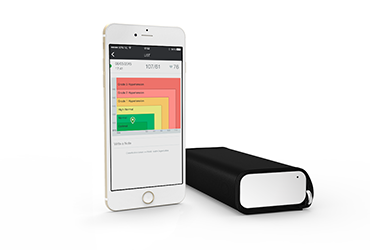Hypertension, also known as high blood pressure, is when your heart exerts more pressure to pump your blood through your body. There are no clear symptoms to know if you have hypertension. The only way to know it is by measuring your blood pressure.
1. How many people worldwide have hypertension?
It is estimated that people worldwide have hypertension. Surprisingly, only 1 out of 5 hypertension cases have medical attention, making this a major cause of premature death worldwide.
2. Can hypertension affect my cognitive functions?
High blood pressure can affect your cognitive functions. Recent studies have shown hypertension can be linked to dementia. This condition affects your memory, language, problem-solving, and other thinking abilities.
3. Does hypertension affect the level of risk if I have COVID-19?
All kinds of medical conditions affect your risk from coronavirus. Patients with severe cases of coronavirus can develop blood clots. On hypertensive patients, these obstructions in their blood vessels can represent a major risk of having a stroke.
4. Can diabetes cause hypertension?
Diabetes happens when there is not enough insulin to process glucose. In diabetic patients, glucose is accumulated in their bloodstreams, damaging internal organs and elevating their blood pressure.
5. How many young adults worldwide have hypertension?
Hypertension in young adults is more common than we think. Around 1 in 8 adults aged between 20 and 40 years are hypertensive, due to their lifestyle and diet. Hypertensive young adults with this condition are more likely of having cardiovascular events by middle age.
6. Who is more likely to develop hypertension: men or women?
Cardiovascular disease is the main cause of death in women in every major developed country and most emerging countries. When it comes to ages 65 and below, hypertension is more common in men. However, at ages 65 and above, women are more likely to have high blood pressure.
7. What is white coat hypertension?
For some patients, going to the doctor’s office and having their blood pressure measured might represent a situation of stress and anxiety. White coat hypertension is when the blood pressure reading at the doctor’s office is normally higher compared to the readings obtained in other environments, such as at home. The name is related to the white coat doctors normally wear.
8. Are athletes prone to develop hypertension?
Surprisingly, hypertension is the most common cardiovascular condition found in athletes. Nowadays, all athletes are required to perform hypertension screening inside and outside the medical office, as many also have white coat hypertension.
You can also download the guide here.
Sources
World Health Organization
Centers for Disease Control and Prevention
British Heart Foundation
Medical News Today
American Heart Association
Mayo Clinic
National Library of Medicine




